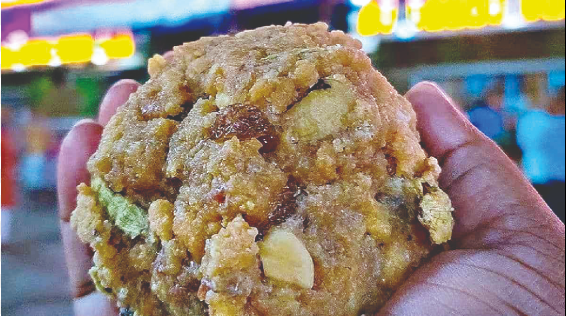Tirupati Laddu Quality Concerns Spark Devotee Outrage
Social Issues Social Inequalities and exclusionPosted by NewAdmin on 2025-01-30 08:43:58 |
Share: Facebook | Twitter | Whatsapp | Linkedin Visits: 33

The Tirupati Laddu, a sacred offering at the Tirumala temple, has become the center of controversy following concerns over its declining quality. Devotees have raised complaints over the years, alleging that the prasadam lacks its traditional taste and aroma due to inferior ingredients, particularly adulterated ghee.
Authorities from the Tirumala Tirupati Devasthanams (TTD), which manages the temple’s affairs, acknowledged receiving multiple complaints from pilgrims regarding the laddus. A recent investigation found that suppliers had been providing low-quality ghee, possibly adulterated with foreign fats. However, TTD officials admitted that their in-house lab lacked the capability to test for such adulteration. In response, the National Dairy Development Board has pledged to donate advanced testing equipment worth ₹75 lakh to enhance quality checks.
Former chief priest AV Ramana Deekshitulu, who served the temple for five decades, voiced his concerns about the deteriorating quality of the laddus and other prasadams. He claimed that despite repeated complaints, no action was taken in previous years. Many devotees share similar sentiments, believing that the sacred offering is losing its authenticity due to commercialization and mass production.
Tirupati Laddu has a long history, with references found in 15th-century devotional songs. However, its present form dates back to 1940, when the TTD formally standardized its preparation. Traditionally, the laddus are made in the temple’s kitchen, known as the “potu,” using ingredients such as Bengal gram flour, sugar, ghee, cashews, cardamom, and raisins. The preparation process, once entirely manual, has undergone modifications with the introduction of modern equipment to meet growing demand.
To maintain its uniqueness and prevent unauthorized sales, the Tirupati Laddu was granted a Geographical Indication (GI) tag in 2009, ensuring that only the TTD could produce and distribute it. Despite these protections, concerns over quality persist, leading to mounting pressure on temple authorities to uphold the sanctity of the prasadam.
In response to the controversy, the Andhra Pradesh government has assured devotees that stringent measures will be implemented to improve the quality of the laddus. TTD officials are now exploring stricter procurement guidelines for ingredients and advanced testing protocols to restore public confidence. Devotees, however, remain skeptical and demand greater transparency in the preparation process to preserve the centuries-old tradition that holds deep religious significance.
Search
Categories
Recent News
- Chelsea's Cup Dreams Shattered: Fofana's Emotional Exit
- Kante's Turkish Twist: Fenerbahce Seal the Deal
- Kerala Defies Central Advice on Rice Incentives
- Naked Chaos at Bangalore's Elite Club: A Shocking Incident
- Solar Fury: ISRO's Vigil Against Radio Blackout
- Indian Markets: AI Jitters Halt Rally, IT Stocks Take a Hit
- SEBI's Reformative Push for Market Integrity
- South Africa's Cricket Renaissance: A Squad with Depth
Popular News
- Navigating IPO Market Dynamics Amid Volatility and Regulatory Changes
- Massive Worldwide Microsoft Outage Disrupts Multiple Sectors
- Panjapur Bus Stand to Reshape TNSTC Routes
- తెలుగుదేశం పార్టీ - పేదరికాన్ని నిర్మూలించడంలో వాగ్దానం
- Universities Embrace Remote Learning Technologies Amidst Ongoing Pandemic